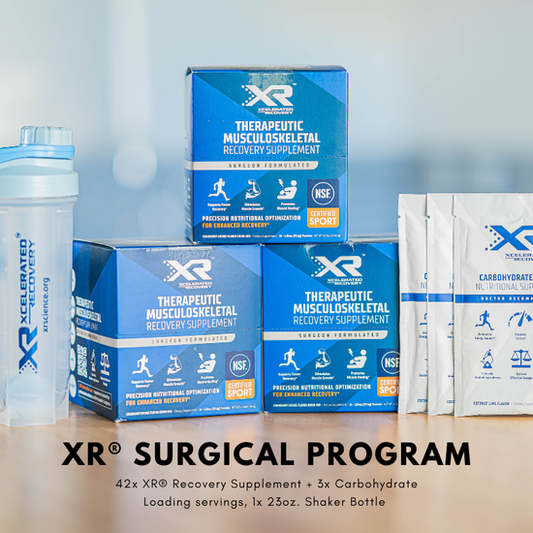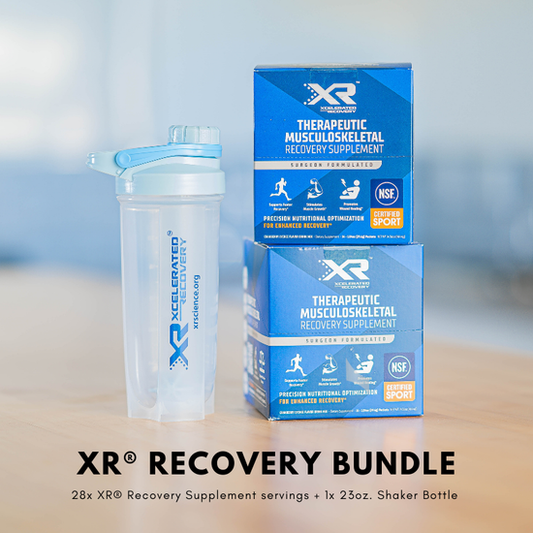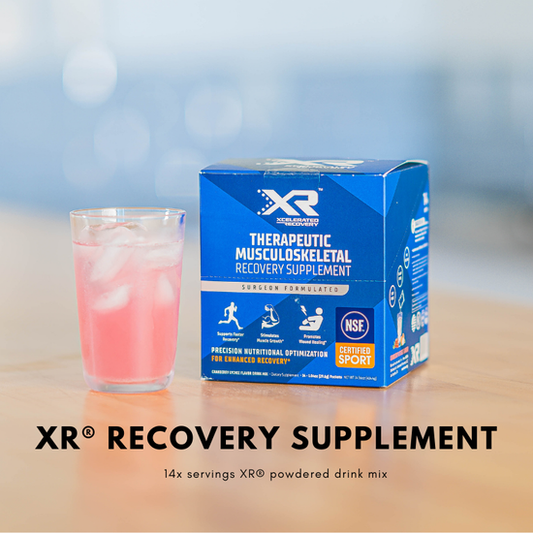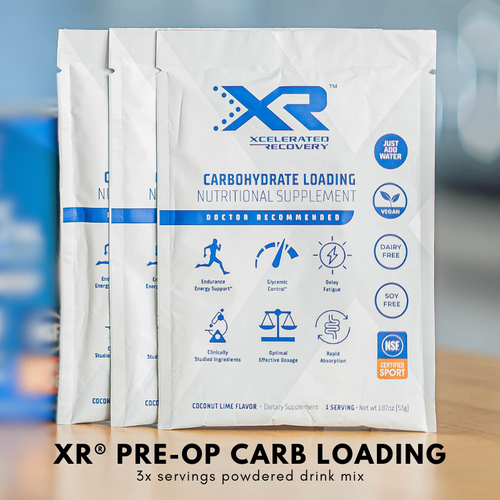
Supporting Breast Cancer Survivors with Optimal Nutrition
Share
Authors: Dr. Ajit Bisen Breast Medical Oncologist and Dr. Reza Jazayeri Orthopeadic Surgeon
Nourishing Recovery: Supporting Breast Cancer Survivors with Optimal Nutrition
Navigating life after breast cancer treatment can be a journey filled with various challenges. From physical changes to emotional adjustments, survivors often encounter hurdles that impact their well-being and quality of life. In this blog, we'll explore the multifaceted benefits of optimal nutrition and how specific dietary strategies, including the use of amino acid supplementation, can help address the diverse needs of breast cancer survivors during the post-treatment phase.

Challenges Faced by Breast Cancer Survivors
Breast cancer treatment, while essential for eradicating cancer, can leave a lasting impact on survivors. Here are some common challenges faced during the post-treatment period:
- Muscle Loss and Sarcopenia: Treatment-related muscle wasting can lead to weakness and reduced physical function. If additional preventive treatment is planned, there is also a higher incidence of treatment-related toxicity. Sarcopenia is a poor prognostic indicator in general for cancer outcome and an independent predictor of severe postoperative complications in solid tumor patients (Roberto et al, Cancers, Jan 2024).
- Weight Management: Hormonal changes and decreased physical activity may contribute to weight gain or obesity.
- Fatigue and Weakness: Persistent fatigue and weakness can affect daily functioning and quality of life.
- Bone Health: Treatment-related hormonal changes increase the risk of osteoporosis and bone fractures.
- Immune Function: Immune suppression post-treatment may increase susceptibility to infections and illnesses.
- Emotional Well-being: Emotional distress and mood changes can impact appetite, food choices and lead to sedentary lifestyle.
- Cognitive Function: Cognitive changes, often termed "chemo brain," can affect memory and mental clarity.
- Digestive Health: Gastrointestinal issues like nausea and diarrhea may persist, impacting nutrient absorption.
- Peripheral Neuropathy: chemotherapy induced peripheral neuropathy can lead to permanent sensation of tingling and numbness in hands and feet leading to discomfort, balance issues and quality of life.

Benefits of Optimal Nutrition
Optimal nutrition plays a pivotal role in supporting breast cancer survivors' overall health and well-being. Here's how it can help address the challenges mentioned above:
- Muscle Preservation and Growth: Amino acid supplementation, particularly branched-chain amino acids (BCAAs) and essential amino acids, such as leucine stimulate muscle protein synthesis and preservation.
- Weight Management: Promoting muscle mass elevation boosts metabolic expenditure, which is pivotal in achieving improved body composition. This approach facilitates fat loss while preserving lean muscle mass, thereby aiding in effective weight management.
- Fatigue Alleviation: Amino acids such as glutamine, and B vitamins support energy production, helping combat fatigue and weakness.
- Bone Health: Certain amino acids contribute to collagen synthesis and bone remodeling, supporting bone health, especially during bisphosphonate therapy treatment to further reduce the risk of breast cancer recurrence
- Hair Health: Amino acids such as cysteine, found in abundance in whey protein, are crucial for hair strength and growth. Additionally, arginine and citrulline promote blood flow to the scalp, facilitating nutrient delivery to hair follicles.
- Nail Health: Amino acids like arginine and lysine support collagen production, contributing to nail strength and integrity.
- Eyelash Health: Glutamine, an essential amino acid, aids in cell regeneration, potentially promoting eyelash growth and thickness.
- Immune Support: Immune-enhancing amino acids like glutamine and arginine strengthen the immune system and reduce infection risk.
- Emotional Well-being: Amino acids are precursors to neurotransmitters that regulate mood, supporting emotional well-being.
- Cognitive Function: Amino acids involved in neurotransmitter synthesis, like tyrosine, may improve cognitive function and mental clarity.
- Digestive Health: Glutamine supplementation supports gut integrity and function, alleviating digestive issues.
- Nerve Health: There is clinical and preclinical data that vitamin B6 may contribute to preventing and alleviating symptoms from chemotherapy induced peripheral neuropathy. Also, amino acids such as leucine can stimulate nerve regeneration (Ma et al. FASEB Journal, May 2021).

Nourishing Recovery
Incorporating optimal nutrition, including amino acid supplementation, in the post-treatment care regimen for breast cancer survivors is essential not only for full recovery, but also quality of life. This becomes even more impactful when paired with regular exercise to combat muscle loss and enhance overall body composition. A balanced diet rich in high-quality proteins and essential amino acids not only supports muscle growth but also aids in the rejuvenation of various bodily tissues, thereby improving both physical and mental well-being.
During the surveillance period after breast cancer treatment, integrating optimal nutrition, exercise, and targeted amino acid supplementation is crucial for supporting recovery and enhancing overall well-being. By addressing the multifaceted challenges faced by survivors and incorporating specific amino acids to address hair, nail, eyelash, and nerve issues, survivors can reclaim control over their health and embrace life beyond cancer with resilience and vitality. Let nourishment, movement, and targeted supplementation work synergistically to fortify physical and emotional well-being on the journey to recovery.
By proactively addressing the multifaceted challenges encountered during this phase, survivors can significantly bolster their recovery, elevate their quality of life, and regain control over their journey to survivorship. Collaborating with a healthcare professional to craft a personalized nutrition plan tailored to individual needs and treatment objectives is crucial. Let nourishment fuel your body's recovery and fortify your resilience as you embrace the path forward with vitality and determination.
The content on this website is not intended to be a substitute for professional medical advice, diagnosis or treatment. Always consult with a qualified and licensed physician or other medical care provider, and follow their advice without delay regardless of anything read on this website.








